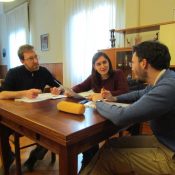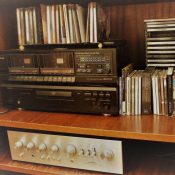For the first time I noticed from my room the jingling of the pitchers on the trolley three floors below me. It means that the novice on duty is bringing water to the refectory and that lunch will start in a quarter of an hour: it’s time for the Examination of conscience, the meditation on the first half of the day.
As soon as I entered the Novitiate I was struck by the feeling of not being able to keep up with everything. Very strange for someone like me, used to hectic work rhythms. For others it seemed that a lot of time had already passed. Each of us has experienced their time here differently.
We come from different educational and life experiences. Suddenly we were close and we started to share our spaces, activities and thoughts. There are many stories, languages and different cultures. I am a software engineer with almost fifteen years of work experience. Others have just graduated, studied economics, medicine and philosophy. We began to share the stories of our lives before the Novitiate and to discuss what we are passionate about. I remember discussing Kant and Hegel over breakfast, or animated conversations on theology or on the economo-political situation of Europe.
Then came the chores. Some are always assigned to the same novice, others are taken in turns, like that of bringing water (in pitchers) to the refectory a quarter of an hour before lunch and serving at table during mealtimes. The latter service is a precious time as we are often in pairs and there is the possibility of getting to know each other better. But time is limited and the work must be done as best we can, so that discussions on Plato and the Pope’s travels are interrupted by:
“Where do we keep the clean spoons?”
or
“I’ll mop the floor after you’ve cleaned the showers.”
We’re getting to know each other through everyday activities, and something magical has happened through this. After a few weeks I noticed with surprise (and amusement) that the topics had changed a bit. For example, how do you use the mop and who was the last to clean the showers? How can you chop vegetables for ratatouille without angering anyone in the kitchen? We realized that many of us felt we had been in the Novitiate for a longer time than had actually passed. I think the Novitiate is an all-encompassing experience that is transforming our time and our perception of things. That’s why I heard the water jugs from three floors below. The smallest and simplest things have become important, the relationship with service has become more intimate.
But don’t worry, we don’t talk just about detergents, we still continue to discuss books and get carried away by our intellectual interests. The magic has not erased what we were before. The magic is that which has raised the relevance of the everyday and the care of the household to the level of that which is most important. And in fact it is so if “we seek and find God in all things“.























Comments